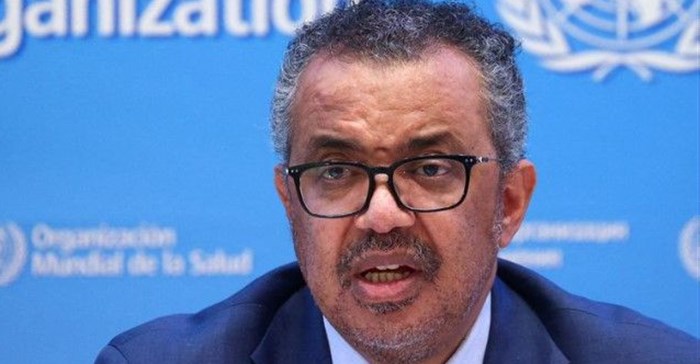WHO ranked the most influential UN-recognised body on Twitter

Twiplomacy is the home of digital-diplomacy intelligence, news, trends and research backed by global communications agency, BCW.
It ranks world bodies by influence and reach using a new custom-designed algorithm.
The Twiplomacy ranking covers all organisations with a seat or an invitation to sit as an observer at the UN.
WHO topped a list of 50 organisations and was judged to have 1.5 times the influence of second-placed Unicef. Unesco ranked third, UN refugee agency UNHCR fourth and UN Women fifth.
UNAids, the UN agency combatting HIV infections came in 10th place, ahead of the International Monetary Fund (IMF) at 11, and the World Food Programme at 12.
The WHO’s followers rose on average by more than 300,000 a month in 2020, and in 2022 its Twitter feed still gains on average more than 140,000 followers a month. Its followers have grown to well over 10 million over the past year, and on average its tweets receive 569 likes and 250 retweets per post.
Beyond the pandemic, the WHO's feed has benefited from engaging, highly visual video content, complete with data-driven storytelling, live broadcasts and a strategy designed to build its digital community.
How Twiplomacy works
Twiplomacy’s ranking algorithm is designed to identify true influence on Twitter, which goes beyond singular metrics: it assigns a tailored weighting to variables, including mentions, tweets, retweets, global reach, impressions, likes and follower count.
Timon Kohli, BCW’s head of data and analytics for Europe and Africa, whose team designed the new methodology, shared: “Our new methodology cuts past singular surface-level metrics such as follower count to pinpoint what it means to be ‘influential’ on Twitter.
"Understanding the statistical dimensions underlying key quantifiable variables such as mentions, impressions and various forms of engagement allows us to narrow down what is driving influence specifically to a particular group of Twitter accounts. Correct weights are then assigned to each metric before calculating a composite score of influence from 1-100 for each handle.
“This report provides a glimpse into how organisations generate engagement and carve out leadership positions for themselves on the platform by implanting different content strategies,” Kohli continued.
“For some organisations, posting regular, highly visual, interactive content boosts their followers and engagement. Others take a ‘less-is-more’ approach, providing occasional reflective commentary on global affairs rather than intentionally steering the conversation.”
Beth Laffin, head of international affairs at BCW and head of Twiplomacy said: “In today’s rapidly changing media landscape, the role of trusted organisations as credible, authoritative sources of factual information has never been more important.
"The Twiplomacy 2022 power rankings illustrate that many people turned to WHO at the height of the Covid-19 pandemic but, crucially, that WHO responded and delivered content that was comprehensive, compelling and above all trusted.
“It’s also clear that the UN plays a powerful campaigning role in today’s world,” Laffin continued. “We can see this with the powerful engagement scores for UN Women and UNAIDS, which were judged to be more influential than the IMF.
"The international community has a pivotal role to play and is one that has yet to reach its full potential.”












